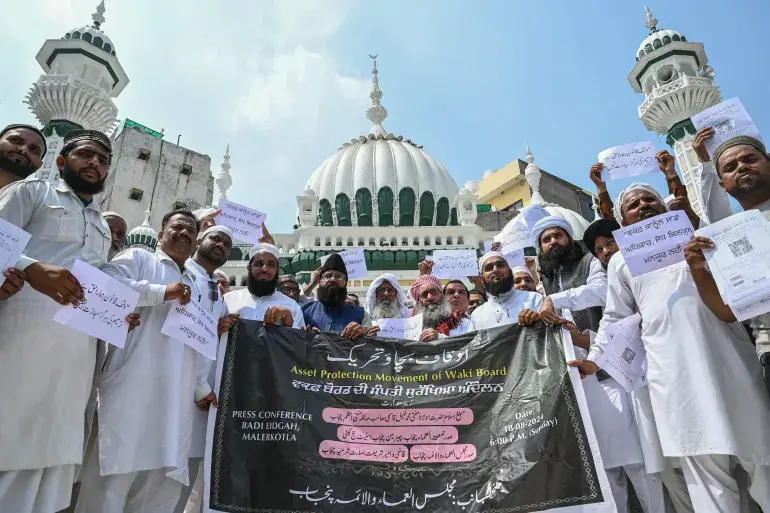The Indian government has assured the country’s top court that non-Muslims will not be part of Waqf boards until the next date of hearing the petitions challenging the changes to waqf legislation.
India’s parliament recently passed controversial changes to waqf legislation, triggering a protest in several parts of the country and a legal battle to overturn the "unjust legislation.”
On Thursday, as the top court heard the case for the second day, the federal government assured the bench that it will not include non-Muslims in the Central Waqf Council and Waqf Boards till the next hearing.
Dozens of petitions have been filed in the Supreme Court against the changes made in the waqf legislation.
A bench of Chief Justice Sanjiv Khanna and Justices Sanjay Kumar and K V Viswanathan was also assured by the government on Thursday it will not denotify waqf properties, local Asian News International reported.
During the hearing of the case, the bench had hinted that it might stay certain key provisions of the act, including the powers of officials to decide disputes over waqf properties and the inclusion of non-Muslims in the Central Waqf Council and Waqf Boards.
The court gave one week to the government to file a preliminary response to the pleas.
The order in the case is now expected during the next date of the hearing, which has been set for May 5.

Waqf law sparks deadly unrest
The controversial bill passed both houses of the parliament despite sharp resistance from opposition parties and Muslim groups. Protests have taken place in several places against the changes.
At least three people were killed after the violence erupted in West Bengal state over the change in waqf laws.
Separately, neighboring Bangladesh on Thursday condemned attacks on the Muslim minority in India.
"We condemn attacks on Muslims causing loss of lives and properties. We urge the government of India and West Bengal to take all steps to fully protect the minority Muslim population," said Shafiqul Alam, the press secretary to interim government head Muhammad Yunus.
However, New Delhi rejected the remarks.
"Instead of making unwarranted comments and indulging in virtue signaling, Bangladesh would do better to focus on protecting the rights of its own minorities," said the Indian Foreign Ministry on Friday.



















